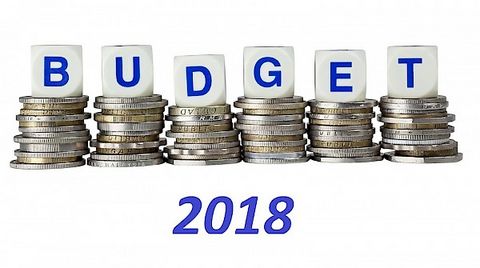Sectors & markets
Ghana's 2018 Budget presented to Parliament

The Government of the Republic of Ghana, through its Finance minister H.E Ken Ofori-Atta presented the 2018 budget to Parliament on November 15, 2017.
THE 2017 RESULTS COMPARED TO 2016
The majority of the main indicators are witnessing an economic progression in 2017. The real GDP growth (January to June 2017) is 7.8%, as against 2.7% in the same period in 2016. Breaking down the GDP growth by sector, Agriculture recorded a lower percentage growth with 4.3%, followed by the Services at 4.7%, and Industry at 17.7%.
The monetary stability has improved with 11.6% end-period inflation as of October 2017 against 15.8% as of October 2016.
Regarding fiscal policy, the budget deficit on cash basis is stated at 4.5% of GDP as against 6.3% at the same period in 2016, a figure that may be explained by restricted total expenditures which were recorded at 8.1% below target. Moreover, the country’s debt has declined from 73% end of December 2016 to 68.6 % end of September 2017.
Concerning the international flows, the current account balance posted a deficit of 0.2% of GDP as of August 2017 against a 2.6% deficit as of August 2016. The trade balance has for instance recorded a 1.5% GDP surplus with a net of EUR 600.5 million, while total export receipts grew by 25.1%.
THE 2018 PROJECTION
Presenting the2018 projection, the government has set the following main targets:
o GDP growth of 6.8 %
o End-period inflation of 8.9%
o Fiscal deficit of 4.5% of GDP
With a total amount of EUR 4.1 billion, the 2018 budgetary allocations for ministries are showing an overall increase of 3% from the 2017 budget. This augmentation is mostly due to the Social sector’s ministries and Sovereign ministries. As an illustration, the ministry for employment and labor relations saw its allocation increase by 538%. Social and Sovereign ministries are respectively the 1st and 2nd most gifted categories by the 2018 budget, accounting for 62.5% and 16.3% of the total 2018 budget.
Concerning the Economic ministries, the latter are marked by a 21% decrease in the Food & Agriculture sector with a 2018 budget of EUR 114 million, while Trade & Industry posts a 55% increase with a EUR 80 million budget. Overall, Economic ministries recorded nearly a 2% budget increase from 2017 and represent close to 13% of the total 2018 budget with an amount of EUR 527 million.
Regarding the Infrastructure ministries, the global allocation has decreased by more than 31%. The most impacted ministries are the Roads & Highways with a 38% decrease, reaching EUR 101 million, and its Transport counterpart with an 83% decrease reaching a 2018 budget of EUR 14.6 million. Meanwhile, Aviation ministry’s allocation has been increased by 236% to reach EUR 37 million. The total allocations for Infrastructures stand for 8.3% of the budget with a total amount of EUR 343 million.
Looking at key announcements, the government has proposed a 13% residential and non-residential electricity tariffs reduction, which has to be approved by the Public Utilities Regulatory Commission. The government also announced that the Special Import Levy will be maintained until 2019.
Lastly, following the launch of the “One District One Factory” and the “Planting for Food and Jobs” initiatives, the government has announced that it will regroup these 2 programs under a special initiative called the “Akufo-Addo Program for Economic Transformation (AAPET)”, with the strategic aim of intervening with more efficiency on job creation, infrastructure development and investment in agriculture.
GHS – EUR exchange rate applied:
GHS 1 = EUR 0.19


